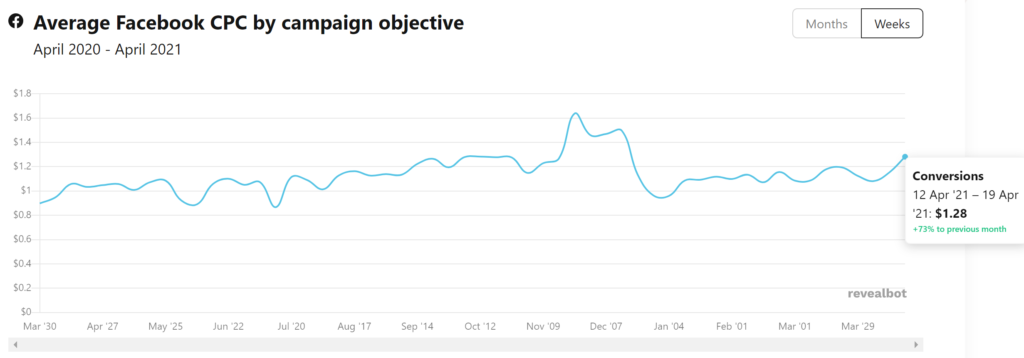How the Facebook Auction Works
Just like Google Ads, Facebook also uses an auction system to determine the best ad to show to a person at a given point in time. Billions of auctions take place everyday across the Facebook family of apps, which means the cost of Facebook advertising is largely determined by supply and demand.
When you set up a Facebook ad campaign, you have access to many tools and settings to help control your Facebook ad costs. You can look at the cost of Facebook ads in two ways: how much you want to spend on a campaign or by how much you want to spend per result. For this reason, it is critical to understand how the ad auction works to maximize your ad performance without overspending your budget.
In addition to the auction, there are two other factors that make up the cost to advertise on Facebook, the value Facebook users get from your ad and estimated action rates.
Facebook’s goal is to increase the time their users spend on Facebook and too many bad ads in users’ news feeds will contribute to users leaving. So if you have an ad that doesn’t perform well because people don’t like it, you will have to pay more to Facebook for them to deliver it to their users. On the other hand, if you create an ad people like, you won’t have to pay as much for the ad because you’re helping make Facebook a better experience for their users. Facebook uses a number of different methods to measure user value, two of them being the ratio of negative to positive reactions to your ad and the number of users who hide or report your ad.
When there’s an opportunity to show someone an ad, the ads with a target audience that the person belongs to are eligible to compete in the auction.
How Does Facebook Determine the Winner of the Auction?
To ensure that the winning ad maximizes value for both people and businesses, the winner of the auction is the ad with the highest total value. According to Facebook, the total value is a combination of 3 major factors:
From Facebook:
- Bid: The bid placed by an advertiser for that ad (in other words, what the advertiser is willing to pay to achieve their desired outcome). There are multiple ways to manage your bid in the ad auction. To learn more, see About Bid Strategies.
- Estimated action rates: An estimate of whether a particular person engages with or converts from a particular ad (in other words, the probability that showing an ad to a person leads to that desired outcome of the advertiser). Note: Engaging in clickbait and engagement bait does not improve ad performance.
- Ad quality: A measure of the quality of an ad as determined from many sources including feedback from people viewing or hiding the ad and assessments of clickbait, engagement bait and other poor user experiences. For more information on how Facebook measures ad quality, see Avoid Creating Negative Experiences for People Who See Your Ads.
Together, estimated action rates and ad quality measure ad relevance. Ad relevance is so important, that Facebook claims that they subsidize relevant ads in auctions, so more relevant ads often cost less and see more results. In other words, an ad that’s relevant to a person could win an auction against ads with higher bids. Facebook provides an ad relevance diagnostics tool to analyze whether the ads you ran were relevant to the audience you reached.
So that’s in a nutshell how the Facebook Ads auction works. Again, not too different that Google Ads, albeit, with some differences due to the very nature of each marketing channel.
Facebook Advertising Costs (April 2021 Data)
As I mentioned before, the cost of Facebook advertising is largely determined by supply and demand. Below are several charts showing the average advertising costs over the past 12 months based on “conversions” as the campaign objective.



As always, if you need any assistance with your eCommerce marketing, our MGR Team will be happy to chat with you one-on-one. Use this link to contact us and set up your free consultation.
Thank you for reading. Until next time, this is Manuel Gil del Real (MGR).
Source: Facebook.com
Charts: Revealbot.com




